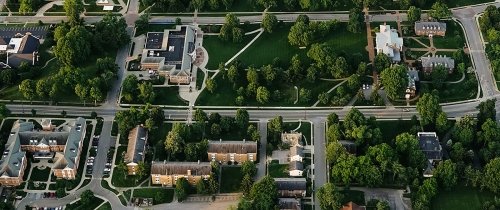NACM survey findings show that alumni who actively engaged in career planning while at Centre were more satisfied and prepared for managing their careers. However, the findings also show that we need to do much more to engage all Centre students in developing the skills, competencies, and self-awareness that make our students career ready. These survey results echo what we also heard from the Pillar Subcommittees. Additional investment in career readiness generally and particularly the creation of Career Exploration Communities (CECs), will provide substantial career support and success for our students.
As we focus on Experiential Learning and Community Engagement, we must also be intentional in integrating career reflection and preparedness into the curriculum and co-curriculum, ensuring students reflect on their knowledge and experiences to build the skills and understanding they need for both career and economic mobility. An expanded, community-based approach to career development will enhance the work of the Center for Career and Professional Development (CCPD) and ensure that all students achieve career-readiness milestones. This will include:
Students may participate in one or more CECs to explore an array of careers. We will create CECs that are organized around broad professional topics, such as Public Health and Medicine; Science, Technology, and Sustainability; Entrepreneurship and Business; Arts, Humanities and Culture; Social Impact; Counseling and Spiritual Wellness; and International Careers.
Students will receive advice and mentorship, participate in workshops and networking events, learn from industry experts, explore potential internships, and build their self-awareness and other career competencies.
In the second term of their first year, in preparation for joining one or more CECs, all students will be guided through the human-centered approach to innovation, a hallmark of the CentreWorks program, through which they develop the skills to empathize, define problems, ideate, and test solutions.
Each Career Exploration Community leadership team will consist of a CEC Coordinator, a career counselor, two faculty champions, alumni mentors, and student and peer mentors.
Each CEC Coordinator will also become a member of a student’s mentoring team when a student joins one or more CECs.
The CEC Coordinator will also partner with the Office of Diversity and Inclusion and the Student Life Office to develop targeted programming for identity-focused affinity groups, offering content that meets the needs of each student as they navigate their career-development journeys.

